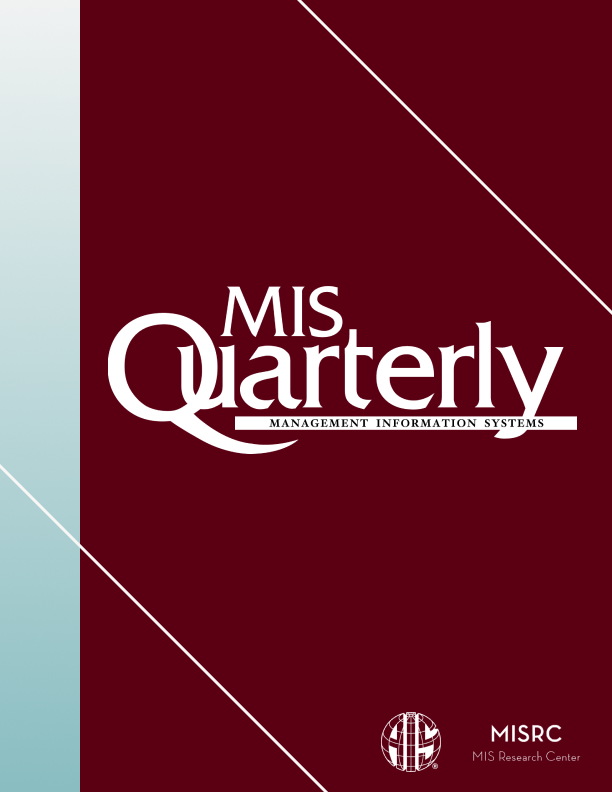Profit vs. Equality? The Case of Financial Risk Assessment and a New Perspective on Alternative Data
IF 7
2区 管理学
Q1 COMPUTER SCIENCE, INFORMATION SYSTEMS
引用次数: 0
Abstract
The importance of pursuing financial inclusion to accelerate economic growth and enhance financial sustainability has been well noted. However, studies have provided few actionable insights into how financial institutions can balance the potential socioeconomic trade-off between profitability and equality. One major challenge arises from a lack of understanding of the impacts of various types of market information available on financial equality beyond economic profitability. Another challenge lies in how the socioeconomic trade-off under a large set of counterfactual policies in a real-world setting can be evaluated. Our motivation for the present study was the emerging sources of digitized user-behavior data (i.e., “alternative data”) stemming from the high penetration of mobile devices and internet access. Accordingly, we investigated how alternative data from smartphones and social media can help mitigate potential financial inequality while preserving business profitability in the context of financial credit risk assessment. We partnered with a leading microloan website to design a novel “meta” experiment that allowed us to simulate various real-world field experiments under an exhaustive set of counterfactual policies. Interestingly, we found that profiling user financial risk using smartphone activities is 1.3 times more effective in improving financial inclusion than using online social media information (23.05% better vs. 18.11%), and nearly 1.3 times more effective in improving business profitability (42% better vs. 33%). Surprisingly, we found that using consumers’ online shopping activities for credit risk profiling can hurt financial inclusion. Furthermore, we investigated potential explanations for financial inclusion improvements. Our findings suggest that alternative data, especially users’ smartphone activities, not only demonstrate higher ubiquity but also appear to be more orthogonal to conventional sensitive demographic attributes. This, in turn, can help mitigate statistical bias driven by the unobserved factors or underrepresentative training samples in machine-based risk assessment processes.
利润vs.平等?金融风险评估案例与替代数据新视角
#html-body [data-pb-style=OLYHIW7]{justify-content:flex-start;display:flex;flex-direction:column;background-position:left top;background-size:cover;background-repeat:no-repeat;background-attachment:scroll}追求普惠金融对加速经济增长和增强金融可持续性的重要性已得到充分认识。然而,对于金融机构如何在盈利能力和平等之间平衡潜在的社会经济权衡,研究几乎没有提供可操作的见解。一个主要的挑战是缺乏对除经济盈利能力之外的各类市场信息对财务平等的影响的了解。另一个挑战在于如何评估现实世界中大量反事实政策下的社会经济权衡。我们本研究的动机是数字化用户行为数据(即“替代数据”)的新兴来源,源于移动设备和互联网接入的高度普及。因此,我们研究了来自智能手机和社交媒体的替代数据如何有助于缓解潜在的金融不平等,同时在金融信用风险评估的背景下保持企业盈利能力。我们与一家领先的小额贷款网站合作,设计了一个新颖的“元”实验,使我们能够在一套详尽的反事实政策下模拟各种现实世界的实地实验。有趣的是,我们发现使用智能手机活动分析用户金融风险在改善金融包容性方面的效率是使用在线社交媒体信息的1.3倍(23.05%比18.11%),在提高业务盈利能力方面的效率是1.3倍(42%比33%)。令人惊讶的是,我们发现使用消费者的网上购物活动进行信用风险分析可能会损害金融包容性。此外,我们还研究了普惠金融改善的潜在解释。我们的研究结果表明,替代数据,尤其是用户的智能手机活动,不仅显示出更高的普遍性,而且似乎与传统的敏感人口统计属性更正交。反过来,这可以帮助减轻在基于机器的风险评估过程中由未观察到的因素或代表性不足的训练样本驱动的统计偏差。
本文章由计算机程序翻译,如有差异,请以英文原文为准。
求助全文
约1分钟内获得全文
求助全文
来源期刊

Mis Quarterly
工程技术-计算机:信息系统
CiteScore
13.30
自引率
4.10%
发文量
36
审稿时长
6-12 weeks
期刊介绍:
Journal Name: MIS Quarterly
Editorial Objective:
The editorial objective of MIS Quarterly is focused on:
Enhancing and communicating knowledge related to:
Development of IT-based services
Management of IT resources
Use, impact, and economics of IT with managerial, organizational, and societal implications
Addressing professional issues affecting the Information Systems (IS) field as a whole
Key Focus Areas:
Development of IT-based services
Management of IT resources
Use, impact, and economics of IT with managerial, organizational, and societal implications
Professional issues affecting the IS field as a whole
 求助内容:
求助内容: 应助结果提醒方式:
应助结果提醒方式:


